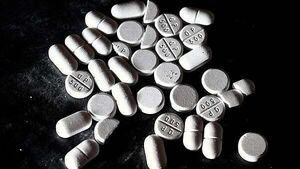Review finds widespread payments made by drug companies to healthcare professionals

Vivienne Clarke
Professor Michael Barry, Clinical Director of the National Centre for Pharmacoeconomics, is calling for “full transparency” about payments made by drug companies to healthcare professionals and healthcare organisations, which amounted to €14.4 million in 2023.
Professor Barry conducted a review of the practice of such payments, which found they were widespread.
Speaking on RTÉ radio’s Morning Ireland said: “What I'd like to see happen is full transparency in this area. I would also like to say, and I believe it will happen in due course, that there will be a consideration of this at HSE level and that we would develop some ground rules around the whole area.”
Professor Barry’s review recommended that the HSE should highlight that it does not support pharmaceutical industry payments to HSE healthcare professionals, as such payments could influence behaviour in a negative way.
The review found 3,500 of the 4,500 payments were made to healthcare professionals and just over 1,000 payments to healthcare organisations.
“You're talking about hospitals, universities, medical societies etc.”
Professor Barry explained that he reviews such issues on a regular basis and that the figures were readily available as they are publicly disclosed in accordance with the Irish Pharmaceutical Healthcare Association (IPHA) code of practice since 2016.
The details on the public website www.transferofvalue.ie come from up to 50 companies, including non-IPHA members.
When asked what the payments were for, Professor Barry said it was for attending conferences, travel, and accommodation.
“This is an area of particular interest to me, particularly because of the evidences out there that this can have an adverse impact on prescribing, and it also can explain various people's interest in areas such as health technology assessment, you know, if there are public statements on the same, I always first go to the Transfer Value website.”
It was his personal view that the pharmaceutical industry should not have any role in the education of healthcare professionals.
“That is not just my view. If you look at the international literature, lots of articles carried in the New England Journal of Medicine over the years. I think it is because of the adverse impact that it can have on prescribing.”
As for the adverse impacts, he said it was interesting that his review found that some people think that their colleagues might be influenced (into prescribing specific drugs), “which I always find intriguing. But the interesting thing is that we can see and the evidence suggests that there's a greater prescribing rate.
"There's more prescribing of branded products rather than cheaper generics. And by default, then, a reduced prescribing of generic medicines. And so that has an impact.
"In addition, you can also see some off-label prescribing, and that might be above and beyond the license indication. And then the issue of patient safety comes into consideration. So yes, this is a very important topic, and I think people will be very interested to look at it.”
Professor Barry said that healthcare organisations in particular needed to be more transparent. “Where is that money going? What is it being used for? Particularly in the hospital sector.
“So you would query why is there the need to resort to taking money from the pharmaceutical industry when the HSE is already making it available.”





